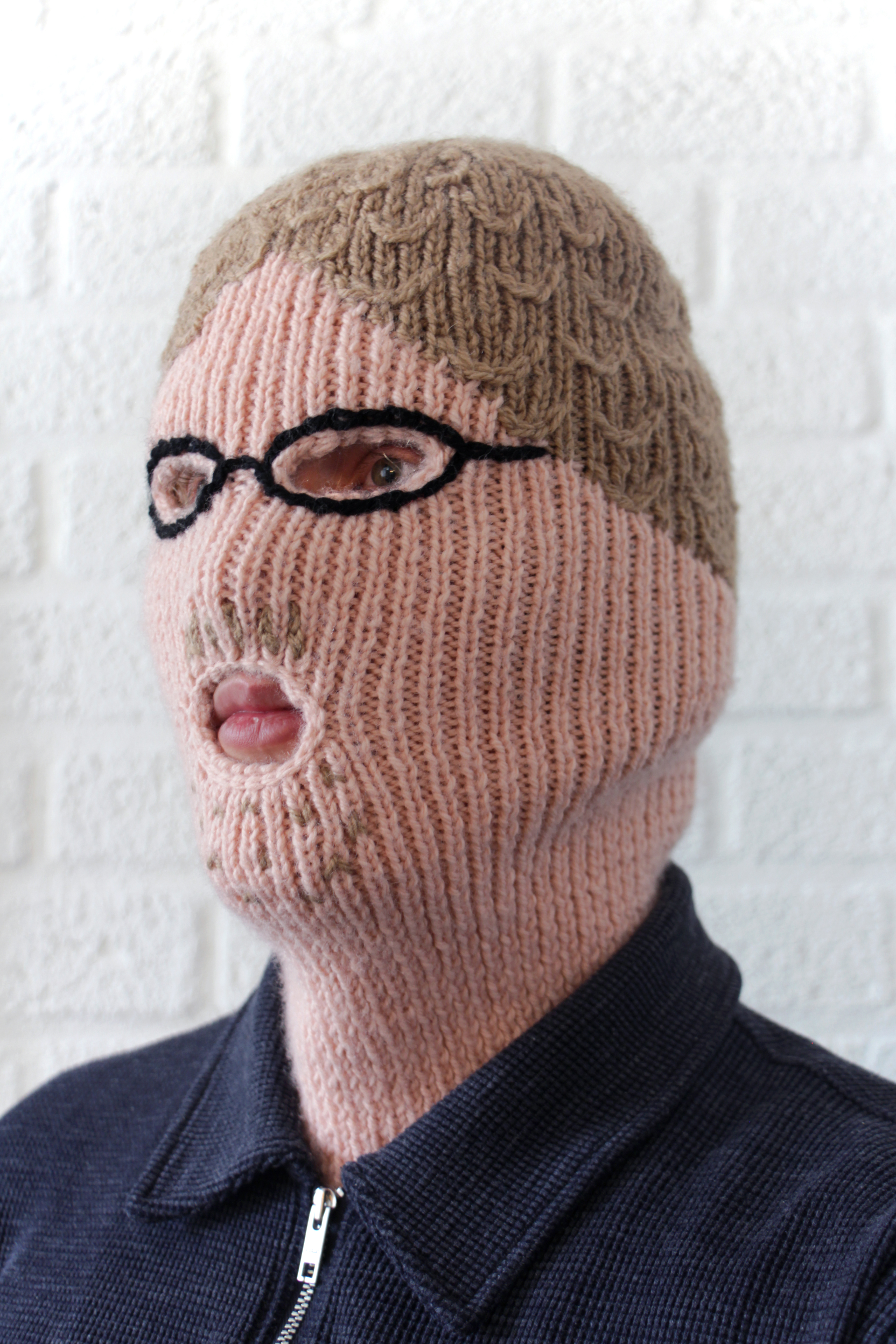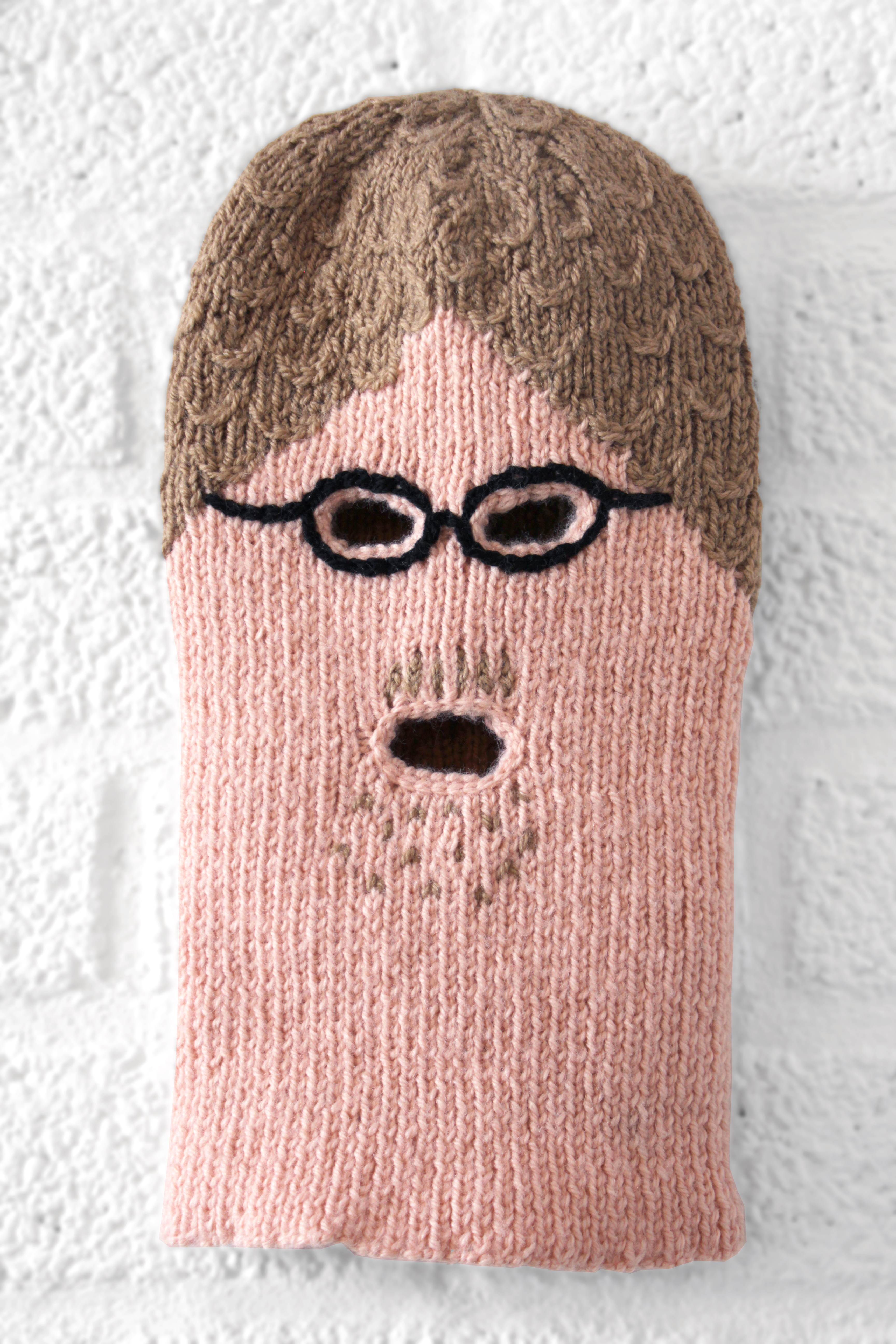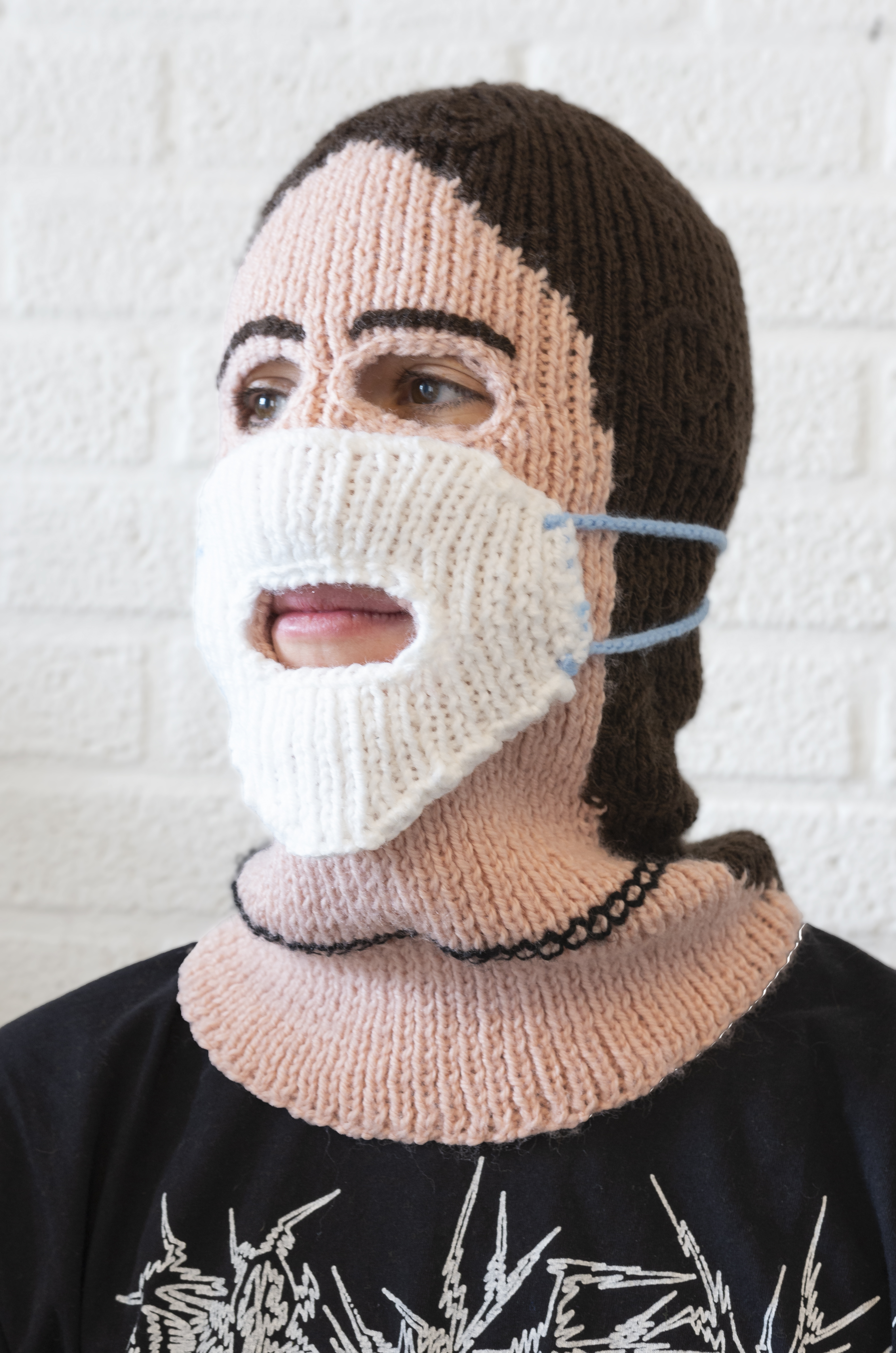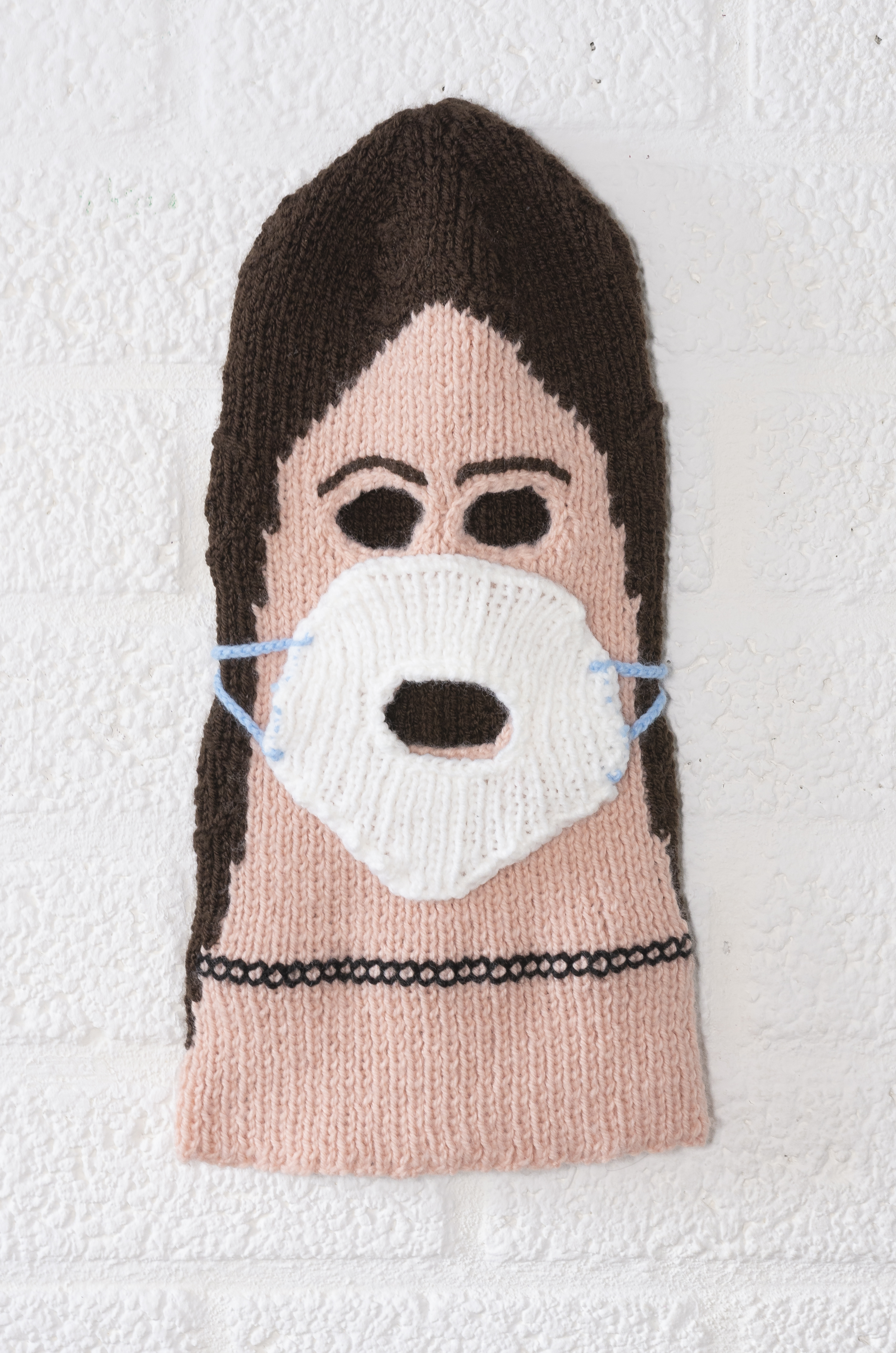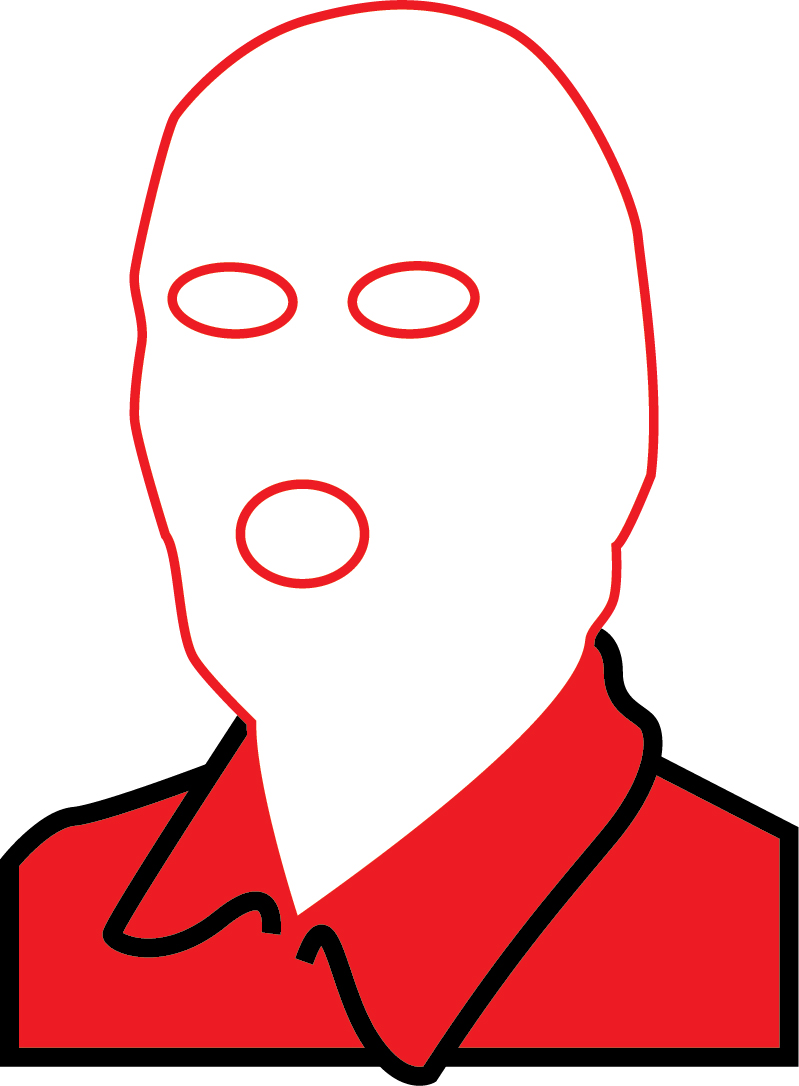About: 'Personalised Anonymity'
About 'Personalised Anonymity':
Under the motto 'personalized anonymity', these custom balaclava's responds to contemporary consumerism within protest. The balaclava is used to anonymise, but thereby deprives a personal motive while a personal motive during protest becomes increasingly important for people to partake and identify with the cause, made possible by prevailing convictions of individualism and consumerism. The Protest Supplies Store takes it as its goal in this project to bring together these two elements that are apparently incompatible; that seem to exclude each other. It invites people to colour in a colouring page of a balaclava (ski mask; balaclava) based on their own portrait, which is then translated into a knitting pattern that is used to make the balaclava. This creates a series of balaclavas that are the same in shape, but personalized in motive. They are anonymising and still honour the person that wears it. The "custom balaclava" gives people the opportunity to make a completely personalized balaclava, while still guaranteeing complete anonymity.
Background:
The term "Balaclava" comes from a village of the same name in the Crimea where the garments were first produced by order of British troops during the Crimean War of 1853-1856. Originally, the face masks were intended to keep the heads of the English soldiers warm during the cold months on the Eastern European peninsula. Since then, the balaclava has had many functions due to its multifunctional wearing style: for example to warm up the face, but also to protect it in racing sports, or even for camouflage. In all these cases it ensured its wearer to be unrecognisable, whereby it also gained a cult-status as thief mask, even though they are not as regularly used for burglary. These days, because it can be worn as a mask, and can cover the face more or less, the Balaclava is popular among groups where anonymity is of vital important, especially during an era of (self-)transparency and omni-present visibility, say through social media and CCTV. For example, the balaclava is worn a lot by police forces, by special forces, but also to a large extent by various protest groups and activists: especially when protests scour the edge of the law and take on a 'forbidden' character as we now see a lot in Hong Kong where protesters risk being arrested and prosecuted when they use one of the fundamental democratic rights that is under pressure: freedom of expression and assembly. In this sense the balaclava is both an object that haunts the domain of secrecy and danger, as well as it is an object of emancipatory value. Protesters here use the garment to conceal their identity, but also as an (aesthetic) common denominator, connecting individuals, creating the appearance of a group. The object is therefore also a "clothing style" that can show and enforce mutual relationships amongst people, and amongst people and society. In the Netherlands, but generally in the West, the balaclava has acquired a crime connotation, partly through representation in films. The stereotypical crook is often portrayed wearing balaclava. This has also created a mystery. This secrecy is problematic in relation to protest, for which the visualization and quantification of a problem is of great importance: this is also why we count participants of a protest to signify its success; why protesters wear signs; why may aesthetic elements are utilised for protest such as performance and costumes. Protests literally try to give a face to a respective problem; and with the balaclava that face disappears. The individual and qualitative aspect of protest is thus simultaneously helped and jeopardized by the balaclava. The Protest Supplies Store takes it as its goal in this project to explore forms in which anonymity and personalization could go hand in hand. So-called "recognizable unrecognizability".
Identity and legal status:
Since the early development of psychology, our real economic space has focused on the personal meaning of objects for consumers. In recent decades, the concept of "life-styles" has come to play a major role throughout our (social) lives, and we literally dress our identity with what we purchase. The multiplication of different garments allows to collect until an "own identity" is created. An important limitation is that ultimately all the supply is determined by fashion houses and is mass produced. Nevertheless, there is still a strong urge to be able to develop your "own" style - also during protest, where we often see this in the paintings of protest signs. The Protest Supplies Storewants to respond to hyper-individualization in a humorous yet practical way, by offering balaclavas of which you can fully determine the pattern of threads (in so-called "rib knit"). The fit, to call it a humorous aspect, on the other hand, is uniform and "one-size fits all". This maintains the fraternizing character so essential to protest.
In the Netherlands and some other countries it is now illegal to wear clothing covering the face in public. Under the motto of "security", anonymity is criminalized. The censored is censored. How can we make something anonymous, and at the same time hyper-personal? By wearing one's own face as a face concealing mask the juridical dimension of this issue is charged: one does indeed conceal one's own face with one's own face. However, because the balaclava remains a face concealing mask, it is impossible to build a logical argument that argues the one wearing the mask is also the one which the mask depicts, so forth playing with the illegalized status of face concealing clothing. A considerable number of objects of use that we recognize has not only a rich (political) history, but also an ideologically colored ethical connotation. The "Custom Balaclava" responds precisely to the convergence of these two issues, unlocking pieces of knowledge that can shed new light on "Protestive" reality.
